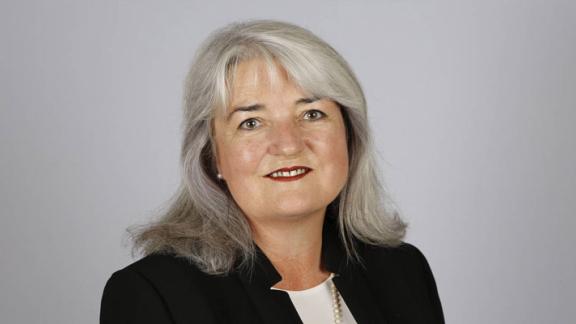Social care reform: social care and the NHS

COVID-19 has highlighted the already pressing need for social care reform. Following publication of the BMA’s recent report on social care, Dr Helena McKeown, BMA representative body chair, underlines the urgency explaining what’s needed and why.
Reform of the social care sector has never been needed more than it does now. Increased pressure on the social care system is resulting in rising levels of unmet need, increasingly impacting the NHS and causing unnecessary strain on critical services, where there is little to no capacity. The COVID-19 pandemic has brought this dramatically to the fore this past year, to the point where government can no longer ignore the need to provide a solution to the current crisis.
The interaction between health and social care is crucial. One cannot work without the other. Expecting the social care sector to cope with massive demand, without the appropriate resources not only impacts the quality of care that people receive but has huge consequences for the NHS. People unnecessarily in hospital who no longer require medical care, while waiting for an appropriate package of care to enable them to be discharged, can impact on the ability of the NHS to provide planned care. This can also cause considerable distress and long stays in hospital for patients and impacts those on waiting lists for treatment and surgery.
Therefore, ensuring people have access to high quality, fully resourced social care services is a key aim of the BMA. It is vital that the government significantly boost social care funding to not only allow services to cope with rapidly rising demand but also widen the access people have to care services. Providing free personal care will improve the lives of those who need care and also help reduce the need for more costly long-term health and social care, while allowing the NHS to provide more treatment for those on waiting lists.
A greater focus should also be placed on prevention and support to help people to stay independent for longer. Services that help people remain in their homes and healthy for longer need to be invested in, including public health strategies to improve physical activities at all ages. Joint planning and partnerships between public health, primary and secondary care, social care and the voluntary sector and investment in communities and partnerships can help identify those in need and provide suitable care. Joint commissioning and funding of these services will be key to their success.
Better integration of health and social care will go a long way to help fix many issues. For example, having social care workers who work in both primary and secondary care or a ‘link’ worker between GPs and hospitals can improve the discharge process. Essential to an integrated health and social care system is an IT system which is fit for purpose and up-to-date with information from all allied specialities. However, integrating services will only work if cuts to social care are reversed and there is investment in health and social care services as a whole, rather than placing the two sectors in competition with each other for the same scarce resources.
Finally, these issues need to be addressed while also investing in the workforce and valuing those who work in social care. Recruitment and retention of staff is a key issue facing the social care sector. Ensuring social care employment terms and conditions are improved through the introduction of salary and career progression would help to improve the situation, alongside better access to health and wellbeing support. Mirroring NHS terms of employment could go a long way to positively impact the social care workforce.
The BMA recently highlighted some of the issues that need addressing in social care in our report, Calling for Action on Social Care in England. We urge the government to stop delaying plans to reform social care. This sector has demonstrated its vital importance for society and needs support now.
Dr Helena McKeown is BMA representative body chair. Follow them on Twitter @helenamckeown @TheBMA



